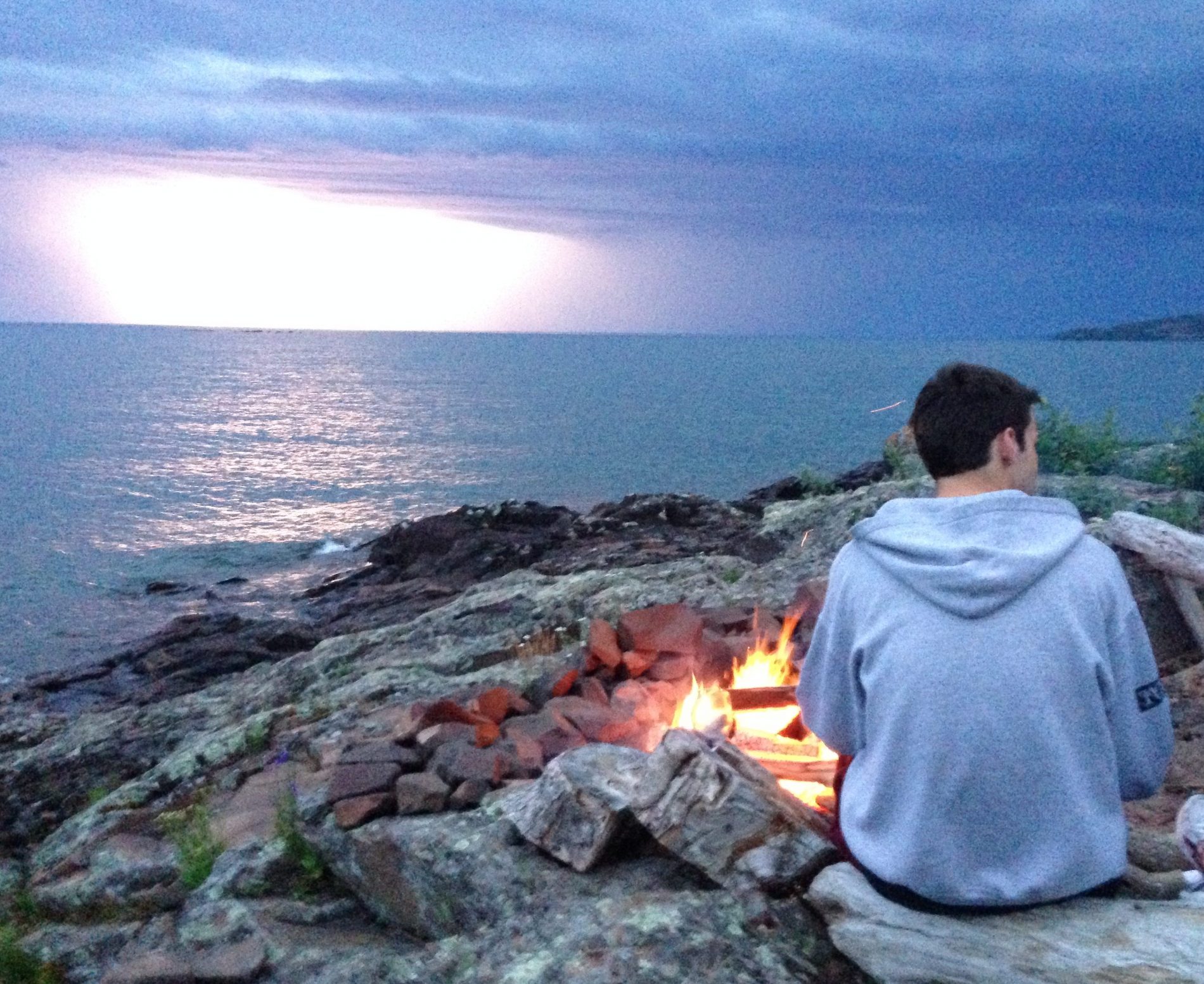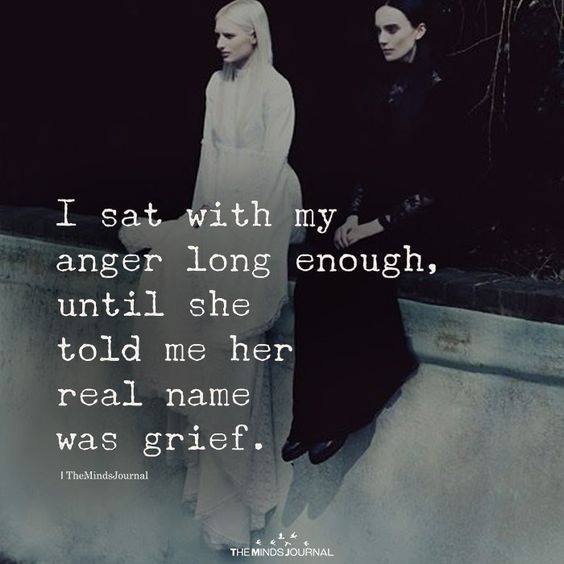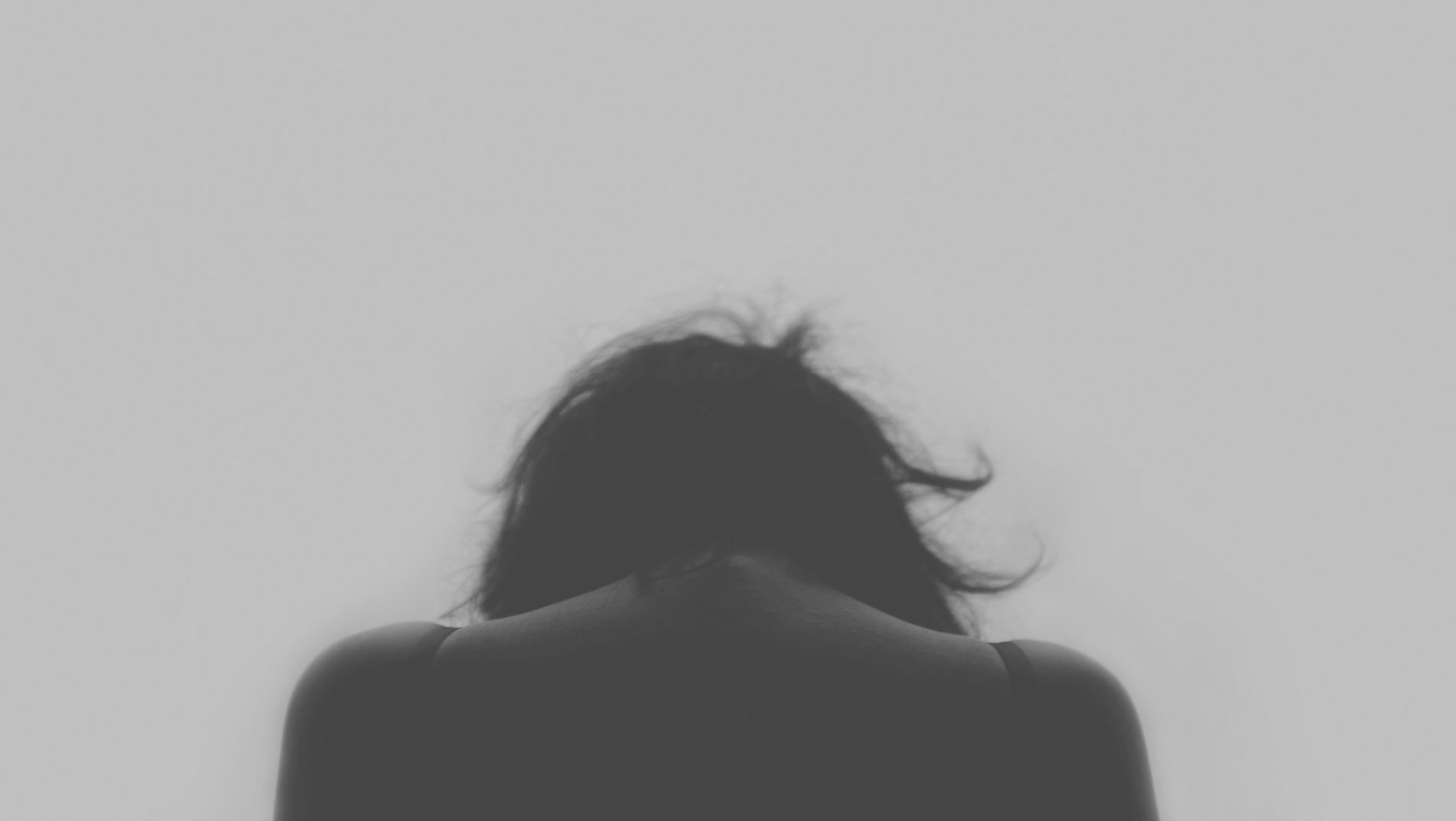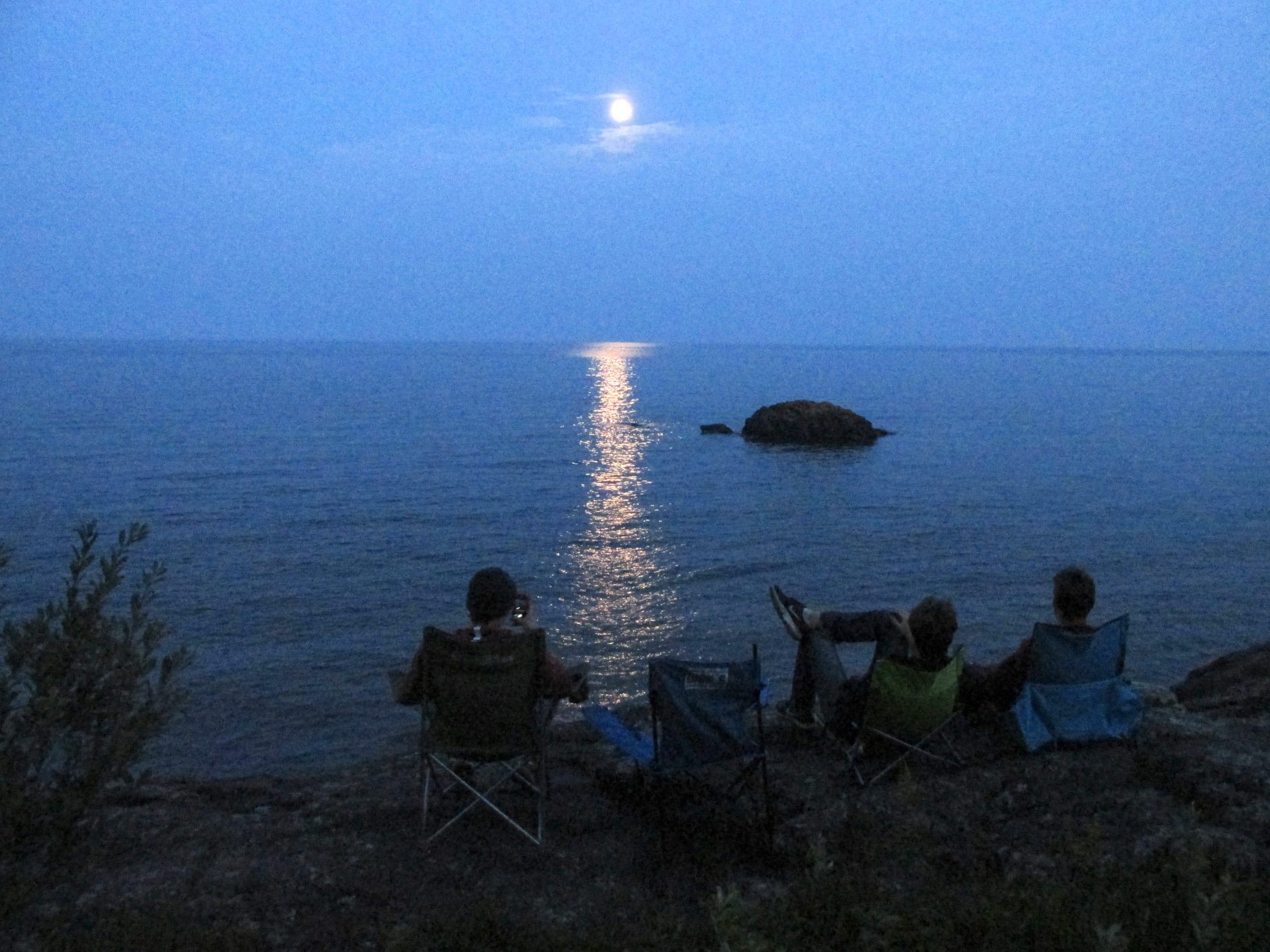I am so sorry for being, naïve, for not understanding you; not knowing what was going on with you.”
Every time I visit my son’s grave site I say, “I am sorry.” I used to go every day, and now I go a couple of times a week, but at each time, I say, “I am sorry. I am really, really, sorry.” The reasons may vary as to why I am sorry. It could be something new I have learned or remembered or just “Sorry for being so stupid.” Stupid for not understanding you; not knowing what was going on with you.”
In the last year of my son’s life, I tiptoed around sensitive issues because I did not want to create anxiety for him. I wanted home to be a safe place. I wanted to support him in his decisions. I regret this avoidance because I did not give him an opportunity to share with me his deep feelings and struggles. I know I flubbed things up while he was in high school and college. I was not enough of an advocate to fight the systems, both in the schools and later, when he became an adult, to push him into using the mental health care system. I did not pry enough. I said the wrong things.
We will never know for sure what drove him to it on that day; only he knows. He was never diagnosed with depression or anxiety.
I recall reading that half of the people who do take their lives or attempt to never had signs of mental illness. I trusted my son; he said he never had a plan. He was never that “bad off.” I should have educated myself. I should have encouraged him to keep seeing a therapist. I should have seen one myself to know what he was going through, having Attention Deficit Disorder (ADD). I should have been closer to his friends and more engaged. Maybe I would have put two and two together.
After talking with his friends, there were signs: signs of despair and withdrawing. At my request, my therapist has given me information on suicide, mental illness, and the use of drugs. We will never know for sure what drove him to it on that day; only he knows. He was never diagnosed with depression or anxiety.
He was diagnosed with ADD when he was in grade school. A symptom of ADD is impulsivity. Medical literature indicates street drugs (in this case marijuana) and mental illness do not go together. For young adults who frequently use marijuana, it can cause reduced executive functioning (planning, prioritizing, the stop and start of activities), as well as reduced caring, working memory, and follow-through. Marijuana heightens feelings and can cause anxiety and paranoia. Several friends told me he was using it every day, mostly smoked, and, as a fun group activity, baked into brownies.
I have retraced everything I said and did with my son during the months leading up to his death; looking back on what I did and did not do.
The suicide rate is increasing at alarming rates, and recently several celebrities have taken their lives. Death by suicide has surpassed the homicide rate. Because of this, there has been an increase in news coverage on suicide prevention. I recently saw an interview of suicide attempters who survived. One survivor said she thought her family would be better off without her. I wonder if that is the way his father and I made him feel: that he was a burden.
He was living with a friend and always seemed busy, always had plans. His friends were his world, and I felt if he were with them, everything was fine. On that particular day, he had plans, but they fell through. Even with all those friends, I wonder if he felt isolated.
I have retraced everything I said and did with my son during the months leading up to his death; looking back on what I did and did not do.
I failed my son. He was great in spite of me.
The feeling of failure is enormous. I failed my son. One of my son’s friends told me I should not feel that way. He said my son was a great person. He was smart, a forever scholar. He was caring, always showing kindness to others, not judgmental, and inclusive. I should be proud I raised such a great son. My son had friends from all over the world. We were fortunate that he shared their friendships with us, inviting these bright young people into our home and lives. They all recall my son as being so caring, putting others first.
He had a great sense of humor. He had passions for things such as educational podcasts, Minnesota sports teams, especially the Vikings. He loved Marvel movies, political comedians, and entertaining his friends. A gentle, sensitive soul, who appreciated the more exceptional things such as art, Broadway plays, and gourmet food. He was an adventurer and loved music and dancing. He had a great style and was so good looking. Friends lovingly used the word “Hot” in front of his name. He was good with children, worked at a camp in summer and the winter taught them how to ski. He had so much to offer. I feel like he was great, in spite of me.
I blame myself. I want to blame others. I want to blame his daily self-medicating use of marijuana.
I keep going through his pictures, and the beautiful stories friends and families wrote about my son. He was such a wonderful person. He should have lived. I keep saying, “This did not need to happen. His life was a life that should have been saved. It was just one bad day. It was just an impulsive act, and it could have been prevented.”
I blame myself. I want to blame others. I want to blame his daily self-medicating use of marijuana. Therapists tell me this was not my fault. Their words do not matter. Putting aside blame, I still feel great guilt. I will always feel this guilt. His death should not have happened.
By reading my blog, maybe there is an opportunity to help others or yourself.
Many of his friends have met or corresponded with me. I appreciate what they have shared with me. I am sure it was hard for them. If they or their families are reading this, please take in what I have written. Maybe there is an opportunity to help others or yourself.
Please continue to share your stories about my son. They are precious to his father, sister, and me. Thank you for each one.
They think they would feel differently and I should feel differently, but they really can’t put themselves in my place.
My heart is always heavy with emotion. I wake up and go to bed with emotions at the surface, where I am still fighting to hold them in. I set aside controlled releases of my feelings, at particular times and places, like in the shower, alone in the car driving, visiting my son at his grave site. The emotions vary between guilt, shame, anger, and blame. My therapist and survivor’s support group helped me understand that these are common emotions for a parent who has lost a child. They also shared that there is an increased propensity to swear and yell which I feel at liberty to do.
When no one is around, sometimes I scream and pound my fights. Sometimes the emotions are uncontrolled and just come out.
One evening after my daughter came home from work, we sat outside with the dogs in the backyard to talk and be together. These days it usually is with a glass of wine in hand. She had had a therapy session earlier in the day. We talked about the anger we feel. She shared she feels like hitting somebody or something. I am not angry at my son because he was the one with the mental illness. I am mostly angry at God and the world for letting this happen to my baby boy.
My son was loved by so many whom he took in with open arms and treated with generosity. He had a genuine concern for others; he consciously worked hard to be a compassionate listener and to be there for his friends. He was a great person for this world so why the hell was he dealt this hand? He deserved so much better.
I cringe when someone I know approaches me with cliche greetings. I also cringe when someone says, “I am praying for you.”
The things that may seem small to people who don’t know what it is like to lose a child are taking a toll on us. Those who don’t follow through when specifically asked to do something. Those who think they understand what I am going through — those who don’t think before they speak and say insensitive things. Keep in mind, the things you say might not be insensitive in a normal situation but can be to those who have lost a young person in their life. Previously hearing about your children’s accomplishments, your vacations, your latest purchases, house remodel, minor life obstacles, and so on, would be normal inviting conversations. Participating in this small talk is hard. I have to work hard to get myself in a place to join in these previously normal conversations. I cringe when someone I know approaches me with cliche greetings spoken in a happy tone (like nothing has happened) such as “How are you?” “Are you having a nice day?” “How was your weekend?” “Enjoy the rest of your day.” There is no real enjoyment anymore; the things we do that should bring enjoyment are now muted because there is this great hole in our lives. I also cringe when someone says, “I am praying for you.”
I feel it is something others need to do for themselves, so they can feel good, like they are helping me. I feel it does nothing for me and everything for them.
My therapist said that it is common to test or lose your faith after such a loss. I grew up Catholic, and my children were baptized as Methodist. While both my husband and I have the Christian faith, we were not big churchgoers after the birth of our second child, mainly because it took so much time on an already short weekend that was filled with kids’ activities and basic chores. Getting ready, driving to church, attending the service, socializing, and then driving back home took half of the day. We treasured our weekends because we both had long work weeks.
My mom had a strong faith, and so did I at the time. We prayed a lot, and so did many others: our faith community, family, and friends. She died at the age of fifty-one, the day before my wedding.
My son’s best friend died at the age of 22, almost two-and-a-half years before my son died. I had a whole congregation praying for him for the last six months of his life.
My dad always told me he was praying for my son after his friend died, as my son was struggling to find his way. All of the prayers did not change the outcome of these shortened lives.
After my son’s death, people tell me they are praying for my son, praying for me, praying for our family. Why? My son is already dead. At this point in my life, I no longer view it as a courteous thing to do. I feel it is something others need to do for themselves, so they can feel good like they are helping me. I feel it does nothing for me and everything for them.
They think they would feel differently and I should feel differently, but they really can’t put themselves in my place.
God failed my son, abandoned his family, and everyone who knew and loved him. Since I come from a family with faith, it is hard for them to hear my anger against God and why I do not believe in prayer. They think they would feel differently and I should feel differently, but they really can’t put themselves in my place.
I felt such relief when one of my family members told me that God deserves all of my anger and contempt. I appreciated not having to fight to have the right to my feelings of anger. I am wondering: Why do they not feel anger and contempt at God too? After all, they have lost a grandchild, nephew, and cousin.
Someone was offering to be with me on my terms and was offering (acceptance of the anger) what I needed.
There are heroic, unselfish gestures that people have done, such as being with his father, sister, and me in this difficult state. One of my family members gave me permission to scream and lash out. “We can take it,” she said. Relief is how I felt when I heard this. Someone was offering to be with me on my terms and was offering (acceptance of the anger) what I needed. That is how I felt when I heard this. Relief.
This story is my journey. Other parents will have a different experience. I appreciate when our support universe acknowledges what we individually need.
I see my life as two pieces — the life I had before my son died, and the life after. The life before me is now foreign to me.
Without doing anything consciously or intentional, my life keeps moving forward just because I wake up in the morning and get out of bed. This new life is not easy. I feel my feet; they are mounted in cement. Heart and chest are heavy. I feel nauseous like when you have to make a speech or do something that makes you nervous. These feelings never go away. They are part of this new life. I see my life as two pieces — the life I had before my son died, and the life after. The life before me is now foreign to me. Even though I remember my son like he was just here at the house visiting, I know I will never get that life back. I am watching it drift away, gone, over the horizon.
Now, what to do, how to move on without him in my present world?
Even though I have worked my whole adult life, have a master’s degree, and have been able to contribute materially to the financial support of my family, my world is and was about my children. Every dream for the future was with them, being together with them as adults as they grew into their lives. My two children were four years and nine months apart; he was her older brother. We had him with us for almost twenty-four years. He was so gentle, patient, and caring with his sister. They fought, of course, because she teased and egged him on. As they got older, they become closer. He would brag about her to his friends and proudly hang her artwork in his apartment. He was so proud of her. In one instant, our world and dreams changed forever. His father and I lost one of the main purposes of our lives: to watch the boy we raised develop his own life. His sister lost her only sibling, someone who was, she supposed, to be with her to share new life experiences.
Many trips and adventures we had yet to take. Holidays to share. Weddings, births, life celebrations to share. All gone.
People who have not lost a child try to relate themselves to my experience. Some share what they would do and how they would feel, but really can’t and should not try. My therapist told me that most parents could not put themselves into that place to envision how they would feel because it would be too unbearable. I have been told by my therapist and several others that losing a child is the worst tragedy anyone should have to face. Only those who have lost a child can provide an opinion on this statement.
Now, what to do, how to move on without him in my present world? I spent the first three months going through all his things, his phone, computer, notebook, meticulously writing everything down. I talked with his friends and employees at his place of work, trying to find answers and understand his suffering. These efforts offered some clarity, but they did not help. I have a feeling of guilt that compounds.
he family that is left behind could have secondary tragic effects because of the shame, guilt, anger, and blame survivors feel. I feel all these things in addition to denial and longing for him.
With the recent release by the Center for Disease Control and Prevention (CDC) of an alarming increase in suicide statistics and celebrity deaths from suicide, there has been an increase in media coverage on suicide prevention. An ABC News chief medical correspondent, Doctor Jennifer Ashton, shared on “Good Morning America” her personal experience when her ex-husband took his life. She said the family that is left behind could have secondary tragic effects because of the shame, guilt, anger, and blame survivors feel. I feel all these things. I am right there with her. These are my daily struggles in addition to denial and longing for him.
I will miss seeing him teach his sister things he was good at like dancing, driving the boat, and cooking. I will miss the two of them together in the kitchen talking about the latest Marvel movie, playing croquet, darts, and ping pong.
I miss him. I miss his hugs and his saying, “I love you too.” I miss his smile and humor. I miss talking with him about the current events and his views. His sharing the latest podcast he listened to, a forever scholar. I miss family dinners. I miss his sharing with me about a new musical artist he liked, a new playlist he created, or comedian he liked. Laughing together when we would watch the highlights from a “Saturday Night Live” that aired the week before. I will miss seeing him teach his sister things he was good at like dancing, driving the boat, and cooking. I will miss the two of them together in the kitchen talking about the latest Marvel movie, playing croquet, darts, and ping pong. I will miss seeing him dance; he loved to dance and was good at it. I will miss seeing him elegantly glide down the ski slope. I miss seeing how great he always looked. He had the most beautiful hair and such a sense of style. I miss the simple things he would let me do for him, like go grocery shopping with him. The list goes on and on.
I encourage seeking mental health services but it takes an effort to find the right fit.
So, I get out of bed every day for my daughter. I want to do the things that help her through this. I encourage seeking mental health services. It was an effort to find the right fit, but I think we are there now. Mental Health directories are vast, and they default by the distance from your location. You cannot sort on the category “bereavement of a child due to suicide.” The professional bios are too generic, and it is too time-consuming to research.
My first encounters with a mental health professional were them listening and hugging me at the end of 45 minutes. These sessions were helpful at first but not ultimately what I needed. I finally ended that relationship after several debacles on their end for things they said to me, did not do, and their inability to work with the short-term disability agency. I then saw a therapist referred from a support group. This therapist spent the first 25 minutes talking about her billing practices, so she did not have to deal with insurance.
I would ask these providers for medical materials on specific subjects. They would never follow through. Finally, I found someone who would. It was a stressful and lengthy process. Because my daughter is over eighteen, it was hard to help her through the medical treatment access process and insurance due to privacy laws. It is so burdensome and foreign to someone of her age. I could see where at some point she would be tempted to give up.
I wish there were a way to leap forward in time to when I am near the end of my life and able to stay in that future time. I would have lived my life; that future place would be easier.
Everything seems so hard to do, and it feels like a constant fight. I wish there were a way to leap forward in time to when I am near the end of my life and able to stay in that future time. I would have lived my life; that future place would be easier. I have to fight to receive short-term disability benefits. The outsourcing agency had little understanding of the debilitating effects of grief. The mental health professionals determining my short- term disability extensions seemed to think the outcome would significantly change from week to week, so they held out to get the latest doctor notes, missing the payroll cut-offs; a month would go by without pay. It was not until I started documenting “on the record” the unfair treatment by the agency and the Human Resource (HR) department, that I did get someone to listen. In the meantime, all of that fighting to be treated correctly takes a toll on my mental state. At the time to curate my son’s grave marker, the cemetery had little understanding of how to work with a family grieving for a young person. We worked with the cemetery at first as we did not know where else to go. It was the most frustrating month. Thank goodness for a friend who had also lost her son, who went through a similar experience; she connected us with a monument company that was more capable. These were things I just never thought I would have to fight for, let alone deal with, at this time in my life.
My therapist said I should let friends and family do things for us. Sometimes it is just hard to talk or be with people. It requires so much energy. I am so appreciative of those who keep asking.
I am so thankful for our brave friends who walk into our house and continue to be with us while we are grieving. I am so grateful for the friend who pulled off to the side road to find a survivor’s support group and was steadfast in getting me there. I am so appreciative of the friends who take us out to eat, invite us into their home, and want to know how we are doing and will let us talk about our son, who allowed us to laugh and cry. I am thankful for the extended family who calls me on the hard holidays, listen to me cry, rant and rave, and pass no judgment, and ask the deep questions to get me to open up to relieve emotions. I am so thankful for those who just text they are thinking of me, for those who keep asking can they clean my house, go grocery shopping, weed my garden, go on walks with me. My therapist said I should let them do these things. Sometimes it is just hard to talk or be with people. It requires so much energy. I am so appreciative of those who keep asking.



